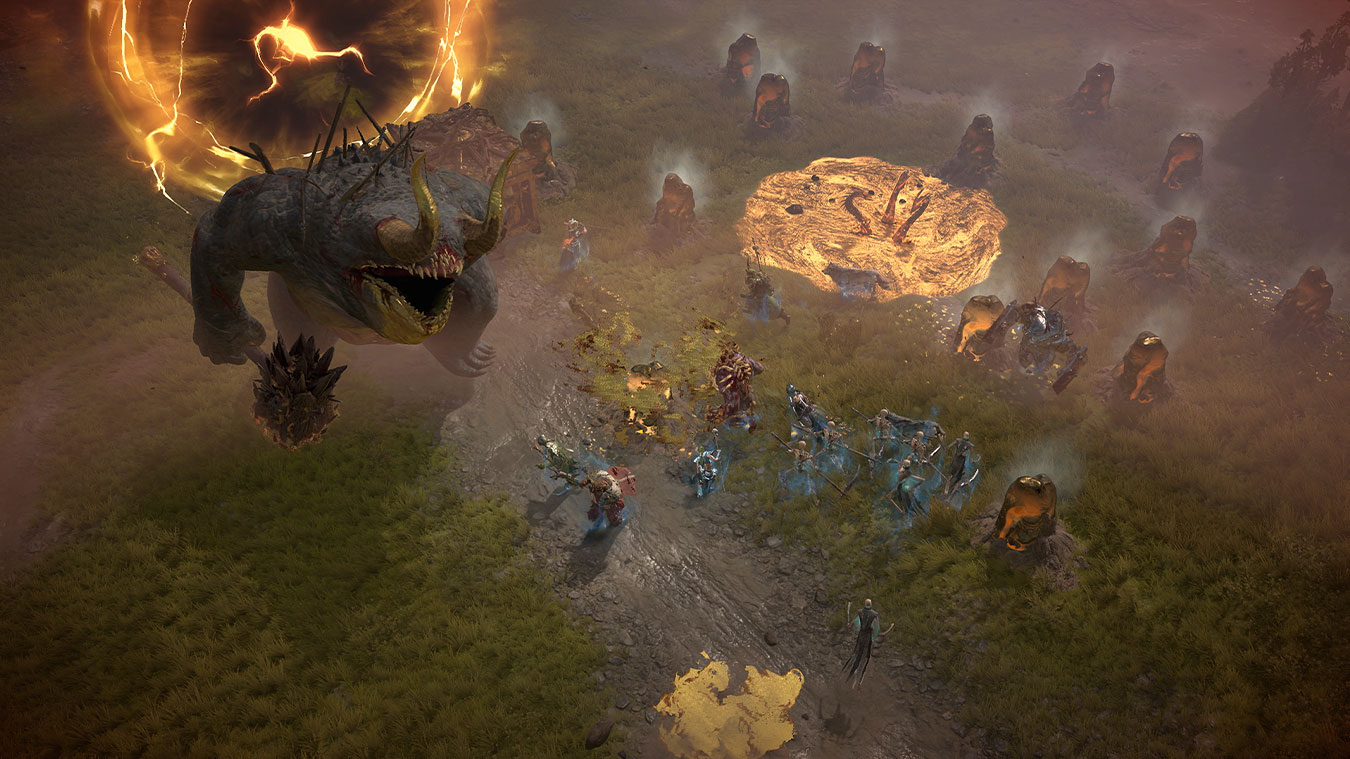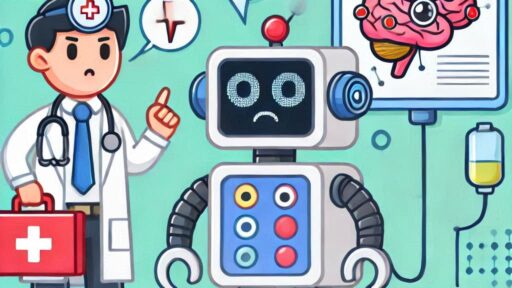Outline
- Introduction
- Overview of AI
- Importance of understanding AI’s future effects
- The Evolution of AI
- Brief history of AI development
- Key milestones in AI technology
- AI in Everyday Life
- AI in home automation
- AI in personal assistants
- AI in Healthcare
- Diagnostic advancements
- AI in treatment plans
- Telemedicine and AI
- AI in Education
- Personalized learning experiences
- AI as a teaching assistant
- AI in administrative tasks
- AI in Business and Finance
- Automation of routine tasks
- AI in decision-making processes
- AI in customer service
- AI in Transportation
- Autonomous vehicles
- AI in traffic management
- AI in public transport
- AI in Entertainment
- AI in content creation
- Personalized recommendations
- AI in gaming
- AI in Security
- AI in cybersecurity
- Surveillance and AI
- Ethical implications
- AI and the Workforce
- Job displacement concerns
- New job creation
- Skills required for the future
- Ethical Considerations
- Bias in AI
- Privacy concerns
- Accountability in AI decisions
- AI and the Environment
- AI in climate change mitigation
- AI in sustainable practices
- AI in resource management
- Future Predictions for AI
- Short-term expectations
- Long-term visions
- Potential challenges
- Conclusion
- Recap of AI’s potential impacts
- Final thoughts on embracing AI
- FAQs
- How will AI change our daily lives?
- Can AI replace human jobs entirely?
- What are the ethical concerns with AI?
- How can AI help in combating climate change?
- What should I study to work with AI?
AI Effects in the Future
Artificial Intelligence (AI) is no longer a concept confined to science fiction. It’s becoming an integral part of our daily lives, influencing everything from how we work to how we interact with the world around us. But what does the future hold for AI? Let’s delve into the transformative effects AI is expected to have in various sectors and what it means for our future.
The Evolution of AI
AI has come a long way since its inception. Initially, it was all about creating machines that could perform tasks that typically required human intelligence. The journey from simple machine learning models to sophisticated neural networks has been fascinating. Key milestones include the development of the first AI programs in the 1950s, the rise of expert systems in the 1980s, and the recent breakthroughs in deep learning and natural language processing.
AI in Everyday Life
AI in Home Automation
Imagine your home anticipating your needs before you even know them. Smart home devices like thermostats, lighting systems, and security cameras use AI to learn your preferences and routines, making your home more comfortable and secure.
AI in Personal Assistants
Digital assistants like Siri, Alexa, and Google Assistant are prime examples of AI in action. They can perform tasks ranging from setting reminders to controlling smart home devices, making our lives easier and more efficient.
AI in Healthcare
Diagnostic Advancements
AI is revolutionising healthcare by enhancing diagnostic accuracy. Machine learning algorithms can analyse medical images, lab results, and patient histories to detect diseases like cancer at earlier stages, potentially saving countless lives.
AI in Treatment Plans
Personalised medicine is another area where AI shines. By analysing vast amounts of data, AI can recommend tailored treatment plans based on an individual’s genetic makeup and lifestyle, leading to better outcomes.
Telemedicine and AI
Telemedicine has gained traction, especially post-pandemic. AI-driven platforms can facilitate remote consultations, monitor patient health in real-time, and even predict potential health issues before they become critical.
AI in Education
Personalised Learning Experiences
AI in education can create personalised learning pathways for students. By assessing their strengths and weaknesses, AI can tailor educational content to each student’s needs, enhancing their learning experience.
AI as a Teaching Assistant
AI can assist teachers by automating administrative tasks like grading and attendance, allowing educators to focus more on teaching and less on paperwork.
AI in Administrative Tasks
From managing school schedules to handling admissions, AI can streamline many administrative processes, making educational institutions more efficient.
AI in Business and Finance
Automation of Routine Tasks
In the business world, AI is taking over repetitive tasks. Whether it’s sorting through emails or managing data entry, AI systems can handle these chores swiftly and accurately, freeing up human workers for more strategic roles.
AI in Decision-Making Processes
AI can analyse complex datasets to provide insights that inform business decisions. This capability is transforming how companies strategise and operate, leading to more informed and effective decision-making.
AI in Customer Service
Chatbots and virtual assistants powered by AI are improving customer service by providing instant responses to queries, handling complaints, and even assisting with purchases.
AI in Transportation
Autonomous Vehicles
Self-driving cars are one of the most exciting developments in AI. These vehicles use AI to navigate, avoid obstacles, and make driving decisions, promising safer and more efficient transportation.
AI in Traffic Management
AI can also optimise traffic flow in cities. By analysing data from traffic cameras and sensors, AI systems can adjust traffic signals in real-time to reduce congestion and improve safety.
AI in Public Transport
Public transport systems are becoming smarter with AI. Predictive maintenance, route optimisation, and real-time updates are just a few ways AI is enhancing public transport efficiency and reliability.
AI in Entertainment
AI in Content Creation
AI is making waves in the entertainment industry by creating music, art, and even writing scripts. These AI-generated works are opening up new creative possibilities and pushing the boundaries of what’s possible.
Personalised Recommendations
Streaming services like Netflix and Spotify use AI to analyse your viewing and listening habits, providing personalised recommendations that keep you engaged and entertained.
AI in Gaming
In the gaming world, AI is being used to create more realistic and challenging environments. AI-driven characters and scenarios make games more immersive and enjoyable.
AI in Security
AI in Cybersecurity
As cyber threats evolve, AI is becoming crucial in cybersecurity. AI systems can detect and respond to threats faster than human analysts, providing a robust defence against cyberattacks.
Surveillance and AI
AI-powered surveillance systems can monitor public spaces and identify suspicious activities, enhancing public safety. However, this raises significant privacy concerns that need to be addressed.
Ethical Implications
The use of AI in surveillance brings up ethical questions about privacy and civil liberties. It’s essential to balance security needs with respect for individual rights.
AI and the Workforce
Job Displacement Concerns
One of the most debated aspects of AI is its impact on jobs. While AI can automate many tasks, there is a fear that it might lead to job losses in certain sectors. However, history shows that technological advancements often create new job opportunities.
New Job Creation
AI is expected to create new roles in fields like AI ethics, data science, and AI maintenance. The key will be ensuring that the workforce is equipped with the skills needed for these new roles.
Skills Required for the Future
To thrive in an AI-driven future, individuals will need skills like critical thinking, creativity, and a solid understanding of AI technologies. Continuous learning and adaptation will be crucial.
Ethical Considerations
Bias in AI
AI systems can inadvertently perpetuate biases present in their training data. Addressing these biases is essential to ensure fair and equitable AI applications.
Privacy Concerns
With AI systems collecting vast amounts of data, privacy concerns are paramount. Robust data protection measures must be in place to safeguard personal information.
Accountability in AI Decisions
As AI systems make more decisions, establishing accountability is critical. Clear guidelines and regulations are needed to ensure that AI operates transparently and responsibly.
AI and the Environment
AI in Climate Change Mitigation
AI can play a significant role in combating climate change. From optimising energy use to predicting environmental changes, AI has the potential to drive significant progress in sustainability.
AI in Sustainable Practices
AI can help businesses adopt more sustainable practices by optimising supply chains, reducing waste, and improving resource efficiency.
AI in Resource Management
AI can aid in the management of natural resources by predicting and managing usage patterns, helping to preserve these resources for future generations.
Future Predictions for AI
Short-Term Expectations
In the near future, we can expect continued advancements in AI technology, with more applications becoming integrated into our daily lives.
Long-Term Visions
Long-term, AI could transform society in ways we can’t yet fully predict. From achieving artificial general intelligence to making breakthroughs in scientific research, the possibilities are endless.
Potential Challenges
However, there will be challenges to overcome, including ethical considerations, regulatory frameworks, and ensuring that AI benefits all of humanity.
Conclusion
AI is poised to revolutionise various aspects of our lives, from healthcare and education to business and entertainment. While there are challenges to address, the potential benefits of AI are immense. Embracing AI and preparing for its impact can help us harness its power for a brighter, more innovative future.
FAQs
How will AI change our daily lives?
AI will make our lives more convenient and efficient by automating routine tasks, enhancing personalisation, and improving decision-making in various areas.
Can AI replace human jobs entirely?
While AI can automate certain tasks, it is unlikely to replace all human jobs. Instead, it will create new opportunities and require the workforce to adapt to new roles and skills.
What are the ethical concerns with AI?
Ethical concerns include bias in AI systems, privacy issues, and accountability in AI decision-making. Addressing these concerns is crucial for responsible AI development.
How can AI help in combating climate change?
AI can optimise energy use, predict environmental changes, and help manage natural resources more efficiently, contributing to climate change mitigation efforts.
What should I study to work with AI?
To work with AI, focus on fields like computer science, data science, machine learning, and AI ethics. Developing critical thinking and problem-solving skills is also essential.





